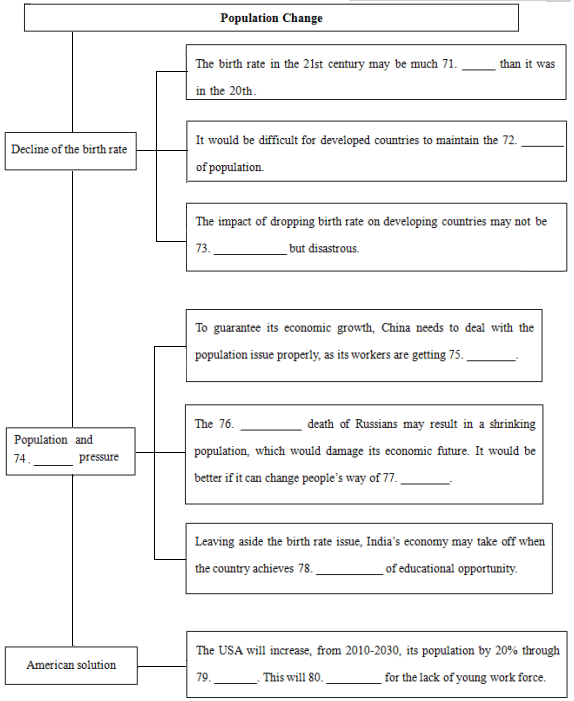19.CHRONOLOGICA
--The Unbelievable Years that Defined History
DID YOU KNOW…
In 105 AD paper was invented in China?
When Columbus discovered the New World?
The British Museum opened in 1759?

CHRONOLOGICA is a fascinating journey through time,from the foundation of Rome to the creation of the internet.Along the way are tales of kings and queens,hot air balloons…and monkeys in space.
Travel through 100 of the most unbelievable years in world history and learn why being a Roman Emperor wasn't always as good as it sounds,how the Hundred Years'War didn't actually last for 100 years and why Spencer Perceval holds a rather unfortunate record.

CHRONOLOGICA is an informative and entertaining tour into history,beautifully illustrated and full of unbelievable facts.While CHRONOLOGICA tells the stories of famous people in history such as Thomas Edison and Alexander the Great,this book also gives an account of the lives of lesser-known individuals including the explorer Mungo Park and sculptor Gutzon Borglum.

This complete but brief historical collection is certain to entertain readers young and old,and guaranteed to present even the biggest history lover with somgthing new!
56.What is CHRONOLOGICA according to the text?C
57.How does the writer recommend CHRONOLOGICA to readers?B
A.By giving details of its collection.
B.By introducing some of its contents.
C.By telling stories at the beginning.
D.By comparing it with other books.
--The Unbelievable Years that Defined History

DID YOU KNOW…
In 105 AD paper was invented in China?
When Columbus discovered the New World?
The British Museum opened in 1759?

CHRONOLOGICA is a fascinating journey through time,from the foundation of Rome to the creation of the internet.Along the way are tales of kings and queens,hot air balloons…and monkeys in space.
Travel through 100 of the most unbelievable years in world history and learn why being a Roman Emperor wasn't always as good as it sounds,how the Hundred Years'War didn't actually last for 100 years and why Spencer Perceval holds a rather unfortunate record.

CHRONOLOGICA is an informative and entertaining tour into history,beautifully illustrated and full of unbelievable facts.While CHRONOLOGICA tells the stories of famous people in history such as Thomas Edison and Alexander the Great,this book also gives an account of the lives of lesser-known individuals including the explorer Mungo Park and sculptor Gutzon Borglum.

This complete but brief historical collection is certain to entertain readers young and old,and guaranteed to present even the biggest history lover with somgthing new!
56.What is CHRONOLOGICA according to the text?C
| A.A biography. | B.A travel guide. |
| C.A history book. | D.A science fiction. |
A.By giving details of its collection.
B.By introducing some of its contents.
C.By telling stories at the beginning.
D.By comparing it with other books.
18.For a long time Gabriel didn't want to be involved in music at all.In his first years of high school,Gabriel would look pityingly at music students,(36)D across the campus with their heavy instrument cases.(37)D at school for practice hours(38)A anyone else had to be there.He swore to himself to (39)Cmusic,as he hated getting to school extra early.
(40)B,one day,in the music class that was (41)Aof his school's standard curriculum,he was playing idly (随意地)on the piano and found it (42)Dto pick out tunes.With a sinking feeling,he realized that he actually (43)Cdoing it.He tried to hide his (44)Bpleasure from the music teather,who had (45)Dover to listen.He might not have done this particularly well,(46)Athe teacher told Gabriel that he had a good(47)Aand suggested that Gabriel go into the musin store-room ti see if any of the instruments there(48)Chim.There he decided to give the cello(大提琴)a(49)B.When he began practicing,he took it very (50)C.But he quickly found that he loved playing this instrurnent,and was (51)Ato practicing it so that within a couple of months he was playing reasonably well.
This(52)D,of course,that he arrived at school early in the morning,(53)Bhis heavy instrument case across the campus to the(54)Blooks of the non-musicians he had left(55)C.
(40)B,one day,in the music class that was (41)Aof his school's standard curriculum,he was playing idly (随意地)on the piano and found it (42)Dto pick out tunes.With a sinking feeling,he realized that he actually (43)Cdoing it.He tried to hide his (44)Bpleasure from the music teather,who had (45)Dover to listen.He might not have done this particularly well,(46)Athe teacher told Gabriel that he had a good(47)Aand suggested that Gabriel go into the musin store-room ti see if any of the instruments there(48)Chim.There he decided to give the cello(大提琴)a(49)B.When he began practicing,he took it very (50)C.But he quickly found that he loved playing this instrurnent,and was (51)Ato practicing it so that within a couple of months he was playing reasonably well.
This(52)D,of course,that he arrived at school early in the morning,(53)Bhis heavy instrument case across the campus to the(54)Blooks of the non-musicians he had left(55)C.
| 36.A.travelling | B.marching | C.pacing | D.struggling |
| 37.A.rising up | B.coming up | C.driving up | D.turning up |
| 38.A.before | B.after | C.until | D.since |
| 39.A.betray | B.accept | C.avoid | D.appreciate |
| 40.A.Therefore | B.However | C.Thus | D.Moreover |
| 41.A.part | B.nature | C.basis | D.spirit |
| 42.A.complicated | B.safe | C.confusing | D.easy |
| 43.A.missed | B.disliked | C.enioyed | D.denied |
| 44.A.transparent | B.obvious | C.false | D.similar |
| 45.A.run | B.jogged | C.jumped | D.wandered |
| 46.A.because | B.but | C.though | D.so |
| 47.A.ear | B.taste | C.heart | D.voice |
| 48.A.occurred to | B.took to | C.appealed to | D.held to |
| 49.A.change | B.chance | C.mission | D.function |
| 50.A.seriously | B.proudly | C.casually | D.admitted |
| 51.A.committed | B.used | C.limited | D.admitted |
| 52.A.proved | B.showed | C.stressed | D.meant |
| 53.A.pushing | B.dragging | C.lifting | D.rushing |
| 54.A.admiring | B.pitying | C.annoying | D.teasing |
| 55.A.over | B.aside | C.behind | D.out |
17.The disappearance of dinosaurs is not necessarily caused by astronomical incidents.But _________explanations are hard to find.( )
| A. | alternative | B. | aggressive | C. | ambiguous | D. | apparent |
16.A quick review of successes and failures at the end of year will help _________your year ahead.( )
| A. | shape | B. | switch | C. | stretch | D. | sharpen |
15.In 1963 the UN set up the World Food Programme,one of_____purposes is to relieve worldwide starvation.( )
| A. | which | B. | it's | C. | whose | D. | whom |
14.We choose this hotel because the price for a night here is down to $20,half of______it used to charge.( )
0 140619 140627 140633 140637 140643 140645 140649 140655 140657 140663 140669 140673 140675 140679 140685 140687 140693 140697 140699 140703 140705 140709 140711 140713 140714 140715 140717 140718 140719 140721 140723 140727 140729 140733 140735 140739 140745 140747 140753 140757 140759 140763 140769 140775 140777 140783 140787 140789 140795 140799 140805 140813 151629
| A. | that | B. | which | C. | what | D. | how |

 Before birth,babies can tell the difference between loud sounds and voices.They can even distinguish their mother's voice from that of a female stranger.But when it comes to embryonic learning(胎教),birds could rule the roost.As recently reported in The Auk:Ornithological Adrances,some mother birds may teach their young to sing even before they hatch(孵化).New-born chicks can then imitate their mom's call within a few days of enering the world.
Before birth,babies can tell the difference between loud sounds and voices.They can even distinguish their mother's voice from that of a female stranger.But when it comes to embryonic learning(胎教),birds could rule the roost.As recently reported in The Auk:Ornithological Adrances,some mother birds may teach their young to sing even before they hatch(孵化).New-born chicks can then imitate their mom's call within a few days of enering the world.